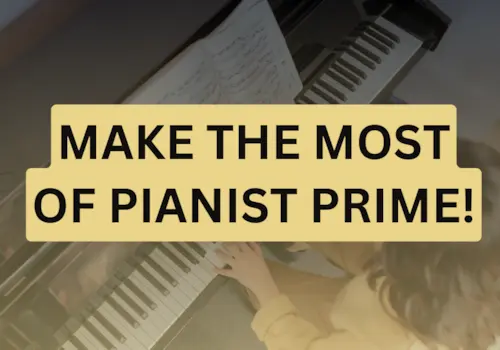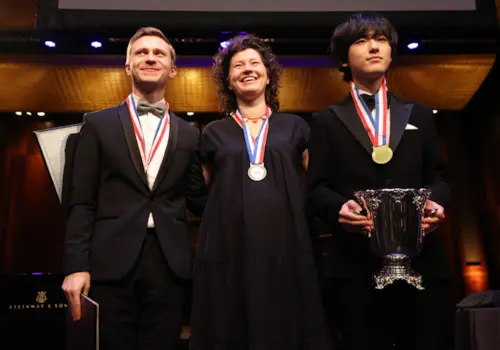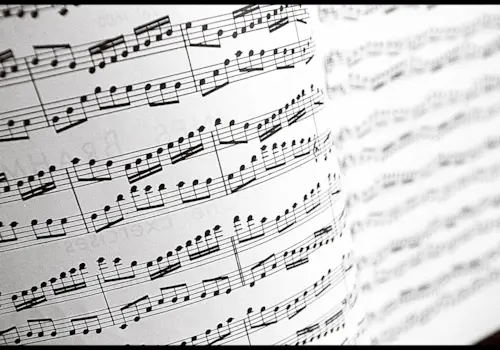02 September 2011
|
Pianist editor Erica Worth catches up with Dame Fanny Waterman as she starts her preparations for the 2012 Leeds Competition...
You must be very proud of the Leeds Competition.
I’ve been told that it is regarded by the international musical community as the greatest musical competition in the world. People write all the time to ask if they can be on the jury.
Has your work on the 2012 competition begun yet?
Oh yes! Firstly, we are about to engage a new administrator. I’m interviewing excellent people. One needs to know how to prioritise, how to raise funds, how to build audiences. Application for entry to the Leeds don’t close until February 2012, but it never stops and there’s always so much to do beforehand.
Tell us about the new Rubinstein Recital Series.
Just as I woke up one night and dreamed of The Leeds all those years ago in 1961, I had a dream not long ago about the Rubinstein Recital Series. Young pianists of today know all about our great contemporary players such as Perahia, Pollini and Argerich, but the legends such as Rubinstein, Gieseking and Schnabel are never really spoken of, even if their recordings are still available. So the three top winners of the last 2009 Leeds Piano Competition will give recitals as part of the Rubinstein Recital Series, which is dedicated to Rubinstein.
I have suggested to them that they really study the way that Rubinstein played some of his major works. I think listening to these works played by the greats is not only an education but an inspiration to the performers of today. In September Alessandro Taverna will be playing Stravinsky’s Petrouchka, which Rubinstein was known for performing.
Did you hear Rubinstein play?
I didn’t him play Petrouchka, or the Franck Prelude, Chorale and Fugue, which Sofya Gulyak will perform at her recital in December. But I did hear him perform – and I heard Rachmaninov, Kreisler and Heifetz – and it sparked something in me.
Tell me about hearing Rachmaninov live.
I was fortunate to hear him when I was eight. My parents didn’t have much money but they found the means to take me to the concerts. I remember Rachmaninov coming on, all the lights were lowered, a huge hush, he never smiled. The silence – I felt I wanted to scream! It’s amazing the respect that these artists had.
So it’s more about keeping these greats ‘alive’?
Yes, we have to keep that going. We owe it to them. We need to bring them into the present. We have recordings and videos now. Once upon a time, if you didn’t get to hear them live, you never heard them. I think of my series as a reawakening to the pianists of the past. I’m determined to look at the past in order to give inspiration to the present.
What about your concert for the Queen’s Silver Jubilee?
This is another innovation of the outreach programme of the competition. On 30 May 2012,400 children will sing as part of a huge choir in Leeds Town Hall. I’m sure the 1,300-capacity hall will be full, and the concert will be free. These children are being trained now and they’ve already learned all the notes! They are from underprivileged schools within Leeds, and they don’t know anything about music, let alone read music. But we have marvellous teachers in the Leeds training committee. We’re calling it a ‘Day of Song’ and we’ll be calling Leeds the ‘City of Song’. There will be Land of Hope and Glory and Jerusalem. Because the children can’t sing all night, some of my pupils will play in between the songs. There will be a nice big picture of the Queen, of course, up there. I’m a great royalist!
I hear the BBC is making a documentary about you.
They are hoping to bring it out around the 2012 competition. It will be about my life and my opinions. I believe that the producer of my Desert Island Disc programme on Radio 4 (aired July 2010) suggested it. I hear that the programme made a big impact on the public. I gather it was one of the best that they had!
Dame Fanny Waterman's series of articles for Pianist - The Craft of Playing - ran in issues 50-56. Read them in full by ordering from our back issues.







